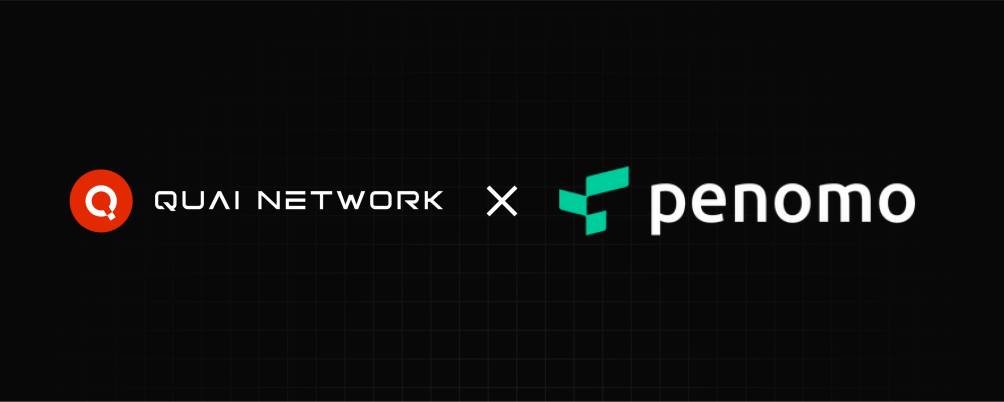
Quai Network is proud to announce its partnership with Penomo, a groundbreaking collaboration that merges blockchain technology with renewable energy to drive global sustainability efforts. This partnership demonstrates Quai’s commitment to harnessing blockchain for tangible environmental and economic benefits.
Revolutionizing Renewable Energy with Blockchain
Penomo provides a comprehensive platform for tokenizing renewable energy assets—including solar PV systems, battery storage, and EV charging infrastructure. By leveraging blockchain technology and the ERC-3643 security token standard, Penomo enables fractional ownership of these assets while ensuring full regulatory compliance. This innovation helps address the $4 trillion annual financing need for global energy transition.
“As blockchain continues to face criticism for its environmental impact, Quai is rewriting the narrative by showcasing tangible applications that drive sustainability,” said Alan Orwick, Co-Founder of Quai Network. “Our partnership with Penomo exemplifies how tokenizing renewable energy can accelerate clean energy adoption, providing a model for how the industry can innovate to contribute positively to global sustainability efforts. This initiative not only democratizes investment in green technology but also fosters a new era of decentralized finance focused on environmental stewardship.”
Key Benefits of the Partnership
- Increased Accessibility: Tokenization allows for fractional ownership, enabling investors of all capital levels to participate in renewable energy projects.
- Liquidity Enhancement: By creating a marketplace for tokenized assets, Penomo fosters greater liquidity in green investments, paving the way for a dynamic and inclusive investment environment.
- Reduced Financing Costs: Renewable energy developers gain access to capital more efficiently, bypassing the high costs traditionally associated with bank loans or equity financing.
- Market Expansion: Opening renewable energy projects to a global investor base accelerates the development of sustainable energy infrastructure.
Driving Innovation Together
“Quai is thinking differently and tackling Layer 1 challenges with bold innovation, like its Proof-of-Entropy-Minima consensus and its tie to energy prices,” said Jasvir Dhillon, CEO of Penomo. “At Penomo, we’re addressing the broad spectrum of on-chain and off-chain finance needs, focusing on energy infrastructure finance. This partnership combines two unique approaches, and the potential here is immense—we’re excited about what’s ahead.”
A Milestone in Sustainable Blockchain Development
This collaboration builds on Quai’s recent achievements, including the launch of its Golden Age Testnet and the addition of Stephen Wolfram as a strategic advisor. Together, these milestones underscore Quai’s role in pioneering scalable blockchain solutions that bridge innovation with real-world impact.
About Penomo
Penomo provides a regulated financing infrastructure that transforms renewable energy assets into accessible, secure, and liquid digital investments. Through its software service, API, and platform interface, Penomo connects renewable project developers with capital allocators while ensuring compliance, transparency, and efficiency in the financing process. The platform supports multiple asset types, including solar PV, battery storage, EV chargers, and other renewable energy infrastructure.
—
This partnership between Quai Network and Penomo is a testament to the power of blockchain in addressing critical global challenges. By combining their unique strengths, both organizations aim to drive a more sustainable and accessible future for energy and finance.
